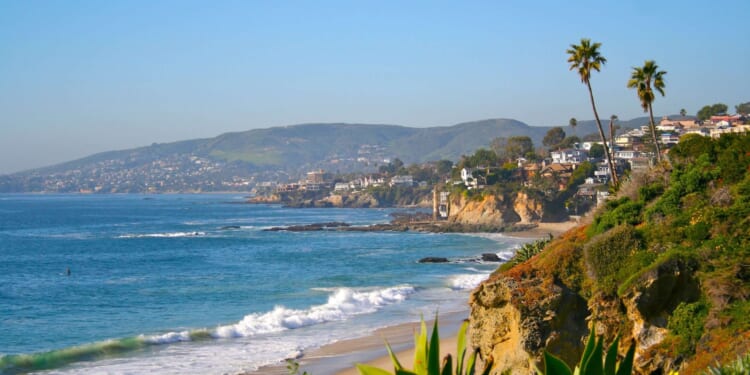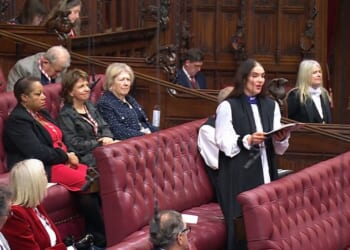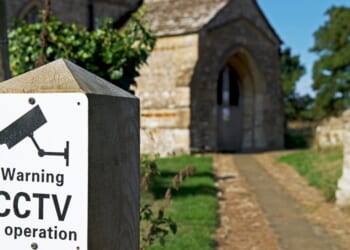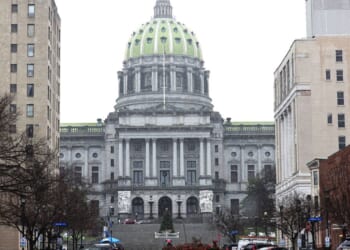

Co-blogger Jonathan Adler recently posted about Alford v. Walton County, an important new 11th Circuit ruling holding that a local ordinance barring property owners from accessing their beachfront property during the Covid pandemic violated the Takings Clause of the Fifth Amendment.
I think the court was right to conclude there was a taking here, and that the County is therefore required to pay compensation, as required by the Takings Clause. But the court elided the difficult issue of the “police power” exception to takings liability.
The relevant ordinance completely barred property owners from accessing or using their beach front property for several weeks during the early part of the Covid pandemic, in March-April 2020. As the court explained, this is an obvious severe restriction on property rights, and therefore part of the right to “private property” protected by the Takings Clause.
Unlike Jonathan Adler, I think the court was also right to conclude this is a “physical taking” that qualifies as a “per se” (automatic) violation of the Takings Clause, as opposed to a mere restriction on “use” subject to the Penn Central balancing test (a vague standard that usually ends up favoring the government). As the court put it, “Ordinance 2020-09 prohibited the Landowners from physically accessing their beachfront property under any circumstances. That is different from a restriction on how the Landowners could use property they otherwise physically possessed.”
But the court avoided what, to my mind, is the most difficult issue posed by this case: the question of the applicability of the “police power” exception to takings liability. For decades, the Supreme Court and various lower courts have held that government actions that would otherwise qualify as takings are exempt from liability if enacted under the police power, which gives government the authority to protect health and safety.
Covid-era restrictions arguably fall within the exception, because they were meant to constrain the spread of a deadly contagious disease, one that ended up killing some 1 million Americans. During the pandemic, a number of state courts upheld Covid shutdown orders against takings challenges based on the police power rationale. I wrote about one such case here.
However, it is far from clear how great a threat to health or safety there must be before the police power exception kicks in. If forestalling even a small risk qualifies, then virtually any restriction on private property rights is exempted from takings liability. After all, just about any use of property poses at least some small risk of spreading disease or causing injury.
In my recent article, “The Constitutional Case Against Exclusionary Zoning” (coauthored with Josh Braver), we argue the police power exception only applies in cases where the government policy in question is preventing a particularly severe danger. For reasons outlined in the article (pp. 25-31), that approach is consistent with original meaning, and with relevant Supreme Court precedent.
By that standard, the Walton County beach restriction and similar measures in other jurisdictions do not qualify for the police power exception. It quickly became clear that outdoor transmission of Covid does not pose much risk. Moreover, it was particularly absurd to ban even the owners from using their own property. If one of them was infected, they could much more likely spread the infection to each other while at home indoors, where the law did not prevent them from interacting with each other.
Thus, I think the court ultimately got this case right. But they should have addressed the police power exception and how it might or might not apply here. The court rightly noted that “there is no COVID exception to the Takings Clause” and that “the government must respect constitutional rights during public emergencies, lest the tools of our security become the means of our undoing.” I agree completely! There must be strong judicial review of government invocations of emergency powers. But, though there is no “Covid exception” or “emergency exception” to the Takings Clause, there is a police power exception. And courts should deal with it, when it is potentially relevant.
The Supreme Court, in recent years, has shown little interest in clarifying the scope of the police power exception. But it has – rightly – decided a number of cases strengthening protection for property rights under the Takings Clause generally. This makes it more likely that Takings Clause protections will run into the police power exception, as there are fewer situations where restrictions on property rights avoid takings liability for other reasons.
Thus, the Supreme Court may well have to clarify the police power exception sooner or later. Unless and until they do so, lower courts will continue to struggle with this doctrine.

















